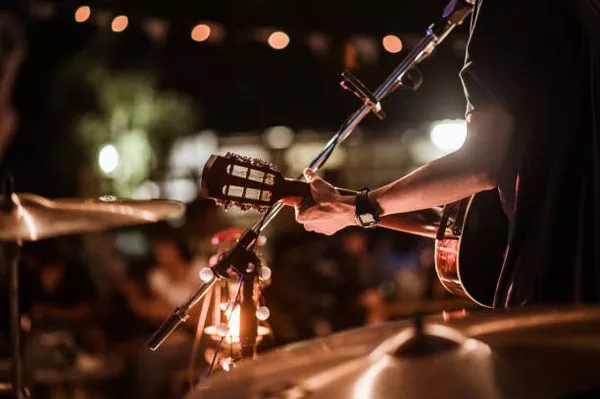One of the most remarkable statistics to emerge from this year’s Emmy nominations is the number of women nominated in the music categories: nearly 27 percent (14 out of 52 nominees) are female, the highest percentage in any Emmy competition to date.
In another first, the category for Original Score for a Limited or Anthology Series, Movie or Special was dominated by women. They scored three of the five nominated shows: “Ms. Marvel” by Laura Karpman, “Prey” by Sarah Schachner and “A Small Light” by Ariel Marx.
Schachner is well known in the video game world (“Assassin’s Creed”, “Call of Duty”), while Marx has quietly made a name for herself in both television (“A Friend of the Family”) and the indie world (“Shiva Baby”). Karpman is the best known, with a Primetime Emmy (“Why We Hate”) and four News & Documentary Emmys (“The Living Edens”).
Eight years ago, only 7.3 per cent of nominees in the music categories were women. While it has taken the industry decades to catch up with the reality of the awards – that many women are fully capable, but not given the same opportunities as their male counterparts – the current Emmy statistics are being cheered by many.
“We are thrilled with the representation of women composers in all categories,” says Heather McIntosh, co-president of the Alliance for Women Film Composers. “These are exceptional scores. While there has been progress, we still have work to do. But we are definitely thrilled.”
Karpman, one of the founders of the AWFC and a leader in the movement to improve diversity across all industry groups, sees the shift as “a combination of people looking for diverse voices in scoring, and those people getting hired, and then those people being able to book higher level projects.
“In the past, none of this was available to us,” says Karpman. “We could not build our careers the way white men could. Each project was a beginning. Now one thing leaps into another in a way it didn’t before.”
Marx, whose miniseries A Small Light was one of the most acclaimed shows of the year, adds: “There’s more support and encouragement for women to direct these bigger projects. It’s an indication that studios, creatives and executives are more willing to give women these big jobs.
The higher numbers may also reflect the changing makeup of the Television Academy, notes AWFC co-president Allyson Newman (who, along with McIntosh and Taura Stinson, is also nominated for a song in “The L Word: Generation Q” this year). “It’s becoming more inclusive and reflective of everyone.”
While the Academy doesn’t release details of its music peer group, there are around 550 members. In recent years, many of the newer members (especially in the music supervision group) have been women, which could create a voting bloc not seen before.
The series composition and music direction categories remained male bastions. But four women were nominated for song, four more for music supervision, one for documentary and two for theme. (Just nine years ago, there were no women in any of the composition categories).
For Holly Amber Church, nominated for her main theme for “Guillermo Del Toro’s Cabinet of Curiosities”, it was a double surprise, as she had never worked in television before and had simply submitted a piece based on an animatic of the opening sequence. Del Toro liked it, made some suggestions and gave the go-ahead for an orchestral session in Budapest, where it was recorded.
Church works mostly on indie films. “Twenty years ago I didn’t know many women composers, and now there are so many out there getting bigger projects,” she says.
























